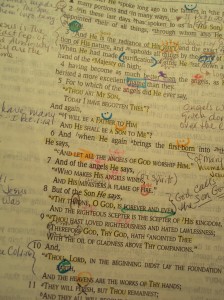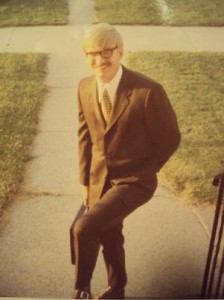When I was young I thought studying the Bible was for older folk. But after having children, I needed its insights and became a devotee.
Eventually I saw the Bible as an exceptional, one-of-a-kind book, becoming convinced it had supernatural powers and multi-layered meanings. As a child I’d heard adults say that studying Scripture was like peeling an onion. As soon as you learn one interpretation, there’s another waiting beneath it.
Now, after decades of sermons and studies, I can vouch for that. No matter how many times I read a specific verse and think I understand it, suddenly a brand new meaning “shows” as if I’d never read it before. That must be one of the reasons it’s called the “living” Word.
This happened not too long ago as I was reading Hebrews. Although I studied this biblical book for a year, marking meaningful verses with colored pens while learning hundreds of new things, this time God peeled away one more layer revealing a bit more scriptural gold.
Hebrews 1 is God’s description of how his Son Jesus is better than the angels, detailing how they were not born of the Father as Jesus was. To prove the high position of his Son he says, “Let all the angels worship him.” (v. 6)
And right after that came the biblical gold. In a passage where he called Jesus by his name and rank, “my begotten Son,” suddenly he calls him “God”. It’s the Father acknowledging his Son as God.
I’d never registered this dramatic statement and was astounded to hear God say this. It demonstrated the closely intertwined relationship he had/has with his begotten Son.
That one phrase also hints at the devastation of the Father when his God-Son left heaven for earth, separating the two of them in a way they hadn’t yet experienced.
That statement rumbled around in my brain for a long time. I’m thinking of it still.
In this same chapter, God tells us Jesus is “the exact imprint of his nature.” (v. 3) In other words, one is as much God as the other. The Father is giving us a peek into the mystery of the two of them being one, which is another onion of gold whose multiple layers have yet to be peeled.
There must be thousands if not millions of layered bits of glittering biblical gold, and as long as I live, there will be no end to them.
So many onions. So little time.
“Of the Son, [God] says, ‘Your throne, O God, is forever and ever’.” (Hebrews 1:8a)







